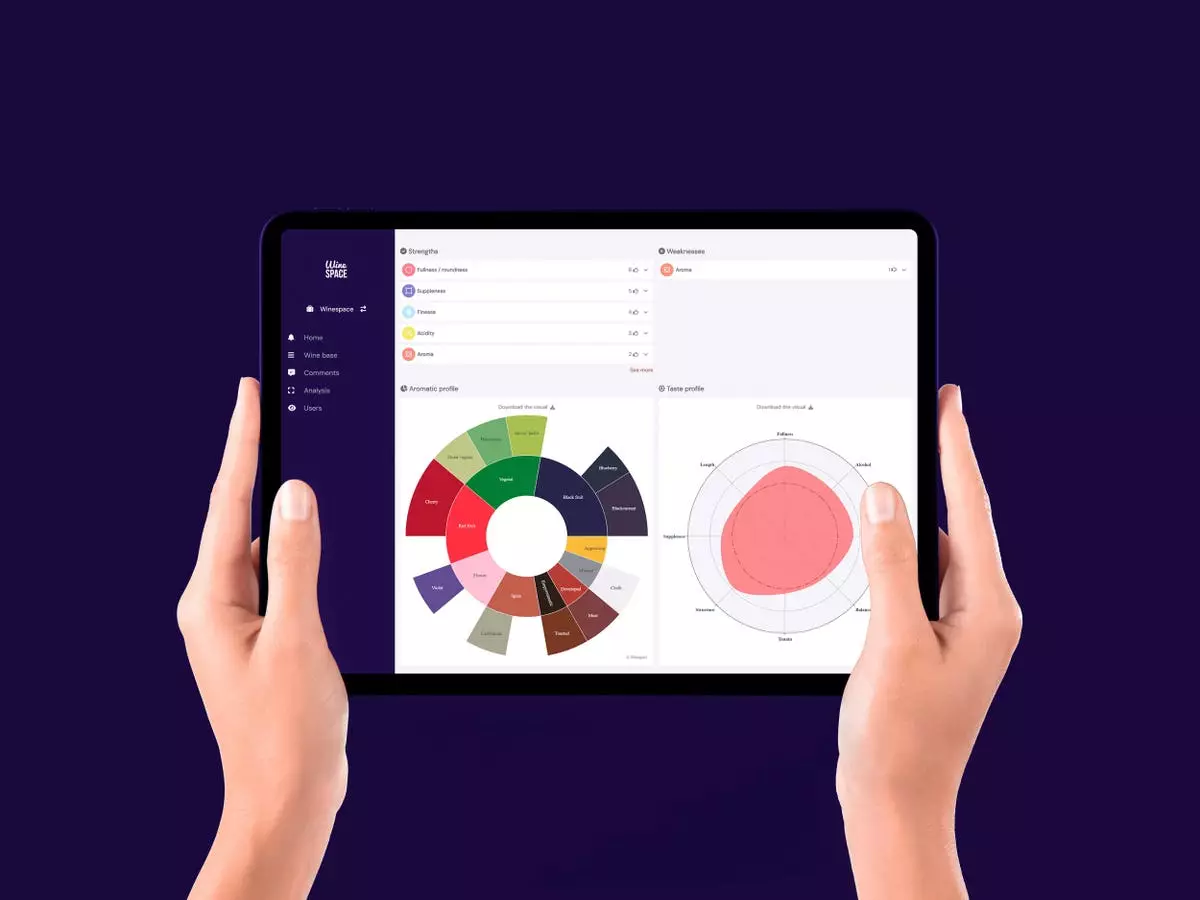The world of winemaking has long been considered an art form, with the appreciation of wine being a result of both the taster’s palate and the vintner’s craftsmanship. However, recent trends in global wine consumption have indicated a decline, prompting the exploration of new avenues to attract and retain customers. One such avenue involves the use of artificial intelligence (AI) to revolutionize the wine industry in ways previously unimaginable.
Winespace, a French startup, has embraced AI technology to generate accurate data on the flavor profiles of wines in the market. Their innovative tool, Tastee AI, extracts information from textual tasting notes and converts them into a digital format for analysis. This advancement not only modernizes traditional tasting and judging practices but also enhances the understanding of wine profiles with a new level of precision. By employing tablets for judges to submit their evaluations, Winespace ensures a streamlined and efficient evaluation process while maintaining consistency and accuracy in recording tasting notes. The use of AI in this context provides winemakers with detailed feedback on their wines, including strengths, weaknesses, aromatic profiles, and taste profiles, enabling them to make informed decisions for future winemaking efforts.
Tastry, a technology company based in California, is another pioneer in the field of AI-assisted wine evaluation. By utilizing artificial intelligence and sensory science, Tastry analyzes and evaluates wines objectively to provide wineries with valuable insights. The company’s platform runs advanced algorithms to assess the chemical composition of wines, providing recommendations to optimize production processes and create wines that resonate with their target audience. Through a combination of liquid analysis and consumer feedback, Tastry offers wineries a market-oriented score that helps gauge consumer preferences and tailor product development, marketing strategies, and distribution efforts accordingly.
Tastry’s approach involves the use of two key data sets: the chemometric platform and a database of consumer preferences. The chemometric platform acts as the wine’s DNA, breaking down complex data to predict consumer preference and sensory experience. On the other hand, the database of consumer preferences provides a nationwide perspective on what resonates with consumers. By leveraging these data sets, Tastry creates a virtual focus group that offers insights free from human biases, inconsistencies, and external factors that can affect judgment. This approach not only empowers winemakers to craft wines that align with consumer preferences but also demystifies the winemaking process, making it more accessible to a broader audience.
AI has the potential to transform the wine industry by providing winemakers with tools to mitigate risks, ensure consistency, and meet consumer preferences effectively. By leveraging AI technology, winemakers can cater to the evolving tastes and preferences of consumers, thereby attracting new enthusiasts to join the wine community. While wine remains an agricultural product, AI can offer valuable insights that enhance the winemaking process and help producers navigate the challenges of every vintage. With AI assistance, winemakers can craft wines that not only meet the demands of the market but also resonate with consumers on a deeper level.
The integration of artificial intelligence in the wine industry marks a turning point in winemaking history. By leveraging AI technology, companies like Winespace and Tastry are revolutionizing traditional practices, providing winemakers with valuable insights, and empowering them to create wines that appeal to a broader audience. As the wine industry continues to evolve, the role of AI in shaping its future cannot be overstated.


Leave a Reply